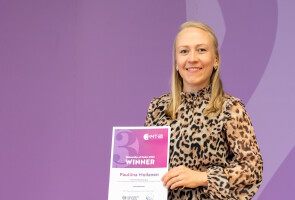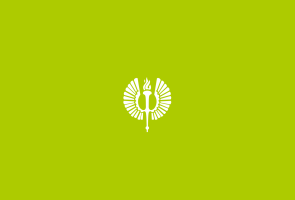The University of Turku has been awarded significant EU funding for a doctoral training project that promotes safe and secure, legally and ethically sustainable use of artificial intelligence.
Human-Centric Artificial Intelligence for Sustainable Future (HAIF) is a doctoral training project led by the University of Turku, involving 10 research groups from the Faculties of Technology, Law, Humanities, and Social Sciences. The HAIF project aims to provide doctoral training that promotes safe and secure, legally and ethically sustainable use of AI.
The research groups in the HAIF project will explore AI from perspectives such as ethical issues, legal regulation, health technology applications, materials engineering, language models, and machine learning. The focus of the research is on the role of humans as developers, users, and decision-makers in the context of AI technologies. The project will also look at how different technologies shape the interaction between humans and AI systems, for example, in terms of transparency, interpretability, reliability and accountability.
The HAIF project is led by Pasi Liljeberg, Professor of Health Technology at the University of Turku. The total budget of the project is €7.9 million, of which €3.4 million has been funded by the Marie Skłodowska-Curie Action of the European Union’s Horizon Europe research and innovation programme.
“The importance of AI in the scientific community and in society at large is evident today and is expected to grow significantly in the near future. This substantial funding will enable the further development of wide-ranging AI research at the University of Turku. In addition, this funding being awarded to Turku recognises the long-term work done at the University of Turku in the field of artificial intelligence," says Professor Liljeberg.
Doctoral researchers recruited to a multidisciplinary research environment meet new expertise needs
The HAIF project will recruit 25 international doctoral researchers in 2025, who will start their work in the first half of the autumn semester 2025. The training of the doctoral researchers responds to the growing demand for new types of expertise, in particular driven by the rapid spread of generative AI and the changing needs of the labour market.
An essential part of the HAIF project is the extensive network of partners, as the project involves international, multidisciplinary collaboration with both research organisations and companies. The project partners include organisations such as Orion Corporation, Wärtsilä Voyage Oy, Lingsoft Language Services Oy, Lindholmen Science Park (Sweden), CSC - IT Center for Science Ltd, KTH Royal Institute of Technology (Sweden), and other European and US universities.
Collaboration between different organisations is a key part of the project, as each doctoral researcher recruited to the HAIF project will spend 4–6 months working in one of the partner organisations. Doctoral researchers will have access to the top-level research infrastructures of the University of Turku and its partner organisations as well as an opportunity to work in a multidisciplinary and international scientific community.




